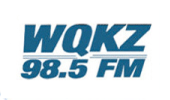 WITZ Banner ad 2020 2_18_2020.jpg
WITZ Banner ad 2020 2_18_2020.jpg
Third Dubois County Farm Reports Avian Influenza
Dubois Co. - Avian influenza has been detected in an additional commercial poultry flock in Dubois County.
Dubois3: Laboratory testing of a commercial flock of turkeys in Dubois County has identified H5 avian influenza virus. This is considered a presumptive-positive case, and samples are being verified at the USDA National Veterinary Services Laboratory (NVSL) in Iowa. This is the fifth farm (known as Dubois3) in Indiana to be diagnosed with avian influenza. Pending test results should indicate if the virus is the same as the index farm diagnosed on Feb. 9 and if the virus is highly pathogenic.
Depopulation efforts are underway on the premises, which houses 35,908 birds.
The location of Dubois3 is approximately 2.5 miles from the Dubois1 site; therefore, a fifth 10-km circle has been established in Dubois County. All commercial poultry within this new control area will be quarantined and tested regularly for the duration of this event (I.e., until the control area is lifted). About half of those farms are in the existing control area. (All 19 farms in this control area are already within a previously established control area.)
BOAH staff continue to reach out to known hobby/backyard poultry owners in the control areas to schedule testing of birds to ensure the virus is not present. To date, 32 hobby flocks have been sampled; laboratory testing determined them as negative. Hobby poultry owners in Southern Dubois County or Greene County should contact BOAH at 317-544-2387 to schedule testing at no charge.
BACKGROUND
On Feb. 9, 2022, a confirmed case of H5N1 highly pathogenic avian influenza (HPAI) was identified in a single commercial turkey flock in Dubois County. This is the first report of HPAI in commercial poultry in the United States since 2020 and the first in Indiana since 2016.
Samples were collected from the birds on Feb. 7 and submitted to the Indiana Animal Disease Diagnostic Laboratory (ADDL) at Purdue University after approximately one hundred birds died, flock appeared lethargic and decreased consumption of water. Tests indicated a likely infection of an H5 avian influenza virus. Under standard protocols, the results were reported to the Indiana State Board of Animal Health (BOAH), which authorized prompt transport of the samples to US Department of Agriculture’s National Veterinary Services Laboratory (NVSL) in Ames, IA for confirmatory testing.
NVSL confirmed that the virus present was a highly pathogenic strain of H5N1 (with a Eurasian H5 goose/Guangdong lineage). Upon confirmation of HPAI, the 29,000 turkeys in the flock (known as Dubois 1) were depopulated to prevent the spread of the disease in the area.
On Feb. 15 laboratory testing of a second commercial flock of turkeys in Dubois County has identified the H5 avian influenza virus (known as Dubois2). Upon confirmation of HPAI, the 26,473 turkeys in the flock were depopulated to prevent the spread of the disease in the area.
On Feb. 17, laboratory testing of a commercial flock of turkeys in Greene County has identified the H5 avian influenza virus (known as Greene1). A total of 48,000 turkeys in the flock were depopulated.
On Feb. 18, laboratory testing identified H5 avian influenza in a commercial turkey flock in Greene County (known as Greene2). A total of 15,400 turkeys were depopulated.
A 10-km control area (CA) is established around each HPAI-affected flock. All commercial flocks in the control areas must be tested for avian influenza at least weekly. Small, hobby flocks are also subject to testing. A surveillance zone is also established in the 10-km circle beyond the control area. Flocks in the surveillance zone must be tested every other week.
RESPONSE
BOAH is working with multiple state and federal partners to respond to this event, including Indiana Department of Health, Indiana Department of Homeland Security, Indiana Department of Natural Resources, Indiana Department of Environmental Management, and USDA Veterinary Services, Wildlife Services and Farm Service Agency.
PUBLIC ADVISORIES
Food Safety
Avian influenza does not present a food safety risk; poultry and eggs are safe to eat. Officials are not aware of any public health significance with this virus. No cases of human infection have been reported. Human health agencies will be monitoring workers and others in contact with birds to monitor for influenza-like illness.
Animal Health
Hobby poultry owners are encouraged to be aware of the signs of avian influenza and report illness and/or death to the USDA Healthy Birds Hotline: 866-536-7593. Callers will be routed to a state or federal veterinarian in Indiana for a case assessment. Dead birds should be double-bagged and refrigerated for possible testing.
Dubois3: Laboratory testing of a commercial flock of turkeys in Dubois County has identified H5 avian influenza virus. This is considered a presumptive-positive case, and samples are being verified at the USDA National Veterinary Services Laboratory (NVSL) in Iowa. This is the fifth farm (known as Dubois3) in Indiana to be diagnosed with avian influenza. Pending test results should indicate if the virus is the same as the index farm diagnosed on Feb. 9 and if the virus is highly pathogenic.
Depopulation efforts are underway on the premises, which houses 35,908 birds.
The location of Dubois3 is approximately 2.5 miles from the Dubois1 site; therefore, a fifth 10-km circle has been established in Dubois County. All commercial poultry within this new control area will be quarantined and tested regularly for the duration of this event (I.e., until the control area is lifted). About half of those farms are in the existing control area. (All 19 farms in this control area are already within a previously established control area.)
BOAH staff continue to reach out to known hobby/backyard poultry owners in the control areas to schedule testing of birds to ensure the virus is not present. To date, 32 hobby flocks have been sampled; laboratory testing determined them as negative. Hobby poultry owners in Southern Dubois County or Greene County should contact BOAH at 317-544-2387 to schedule testing at no charge.
BACKGROUND
On Feb. 9, 2022, a confirmed case of H5N1 highly pathogenic avian influenza (HPAI) was identified in a single commercial turkey flock in Dubois County. This is the first report of HPAI in commercial poultry in the United States since 2020 and the first in Indiana since 2016.
Samples were collected from the birds on Feb. 7 and submitted to the Indiana Animal Disease Diagnostic Laboratory (ADDL) at Purdue University after approximately one hundred birds died, flock appeared lethargic and decreased consumption of water. Tests indicated a likely infection of an H5 avian influenza virus. Under standard protocols, the results were reported to the Indiana State Board of Animal Health (BOAH), which authorized prompt transport of the samples to US Department of Agriculture’s National Veterinary Services Laboratory (NVSL) in Ames, IA for confirmatory testing.
NVSL confirmed that the virus present was a highly pathogenic strain of H5N1 (with a Eurasian H5 goose/Guangdong lineage). Upon confirmation of HPAI, the 29,000 turkeys in the flock (known as Dubois 1) were depopulated to prevent the spread of the disease in the area.
On Feb. 15 laboratory testing of a second commercial flock of turkeys in Dubois County has identified the H5 avian influenza virus (known as Dubois2). Upon confirmation of HPAI, the 26,473 turkeys in the flock were depopulated to prevent the spread of the disease in the area.
On Feb. 17, laboratory testing of a commercial flock of turkeys in Greene County has identified the H5 avian influenza virus (known as Greene1). A total of 48,000 turkeys in the flock were depopulated.
On Feb. 18, laboratory testing identified H5 avian influenza in a commercial turkey flock in Greene County (known as Greene2). A total of 15,400 turkeys were depopulated.
A 10-km control area (CA) is established around each HPAI-affected flock. All commercial flocks in the control areas must be tested for avian influenza at least weekly. Small, hobby flocks are also subject to testing. A surveillance zone is also established in the 10-km circle beyond the control area. Flocks in the surveillance zone must be tested every other week.
RESPONSE
BOAH is working with multiple state and federal partners to respond to this event, including Indiana Department of Health, Indiana Department of Homeland Security, Indiana Department of Natural Resources, Indiana Department of Environmental Management, and USDA Veterinary Services, Wildlife Services and Farm Service Agency.
PUBLIC ADVISORIES
Food Safety
Avian influenza does not present a food safety risk; poultry and eggs are safe to eat. Officials are not aware of any public health significance with this virus. No cases of human infection have been reported. Human health agencies will be monitoring workers and others in contact with birds to monitor for influenza-like illness.
Animal Health
Hobby poultry owners are encouraged to be aware of the signs of avian influenza and report illness and/or death to the USDA Healthy Birds Hotline: 866-536-7593. Callers will be routed to a state or federal veterinarian in Indiana for a case assessment. Dead birds should be double-bagged and refrigerated for possible testing.








